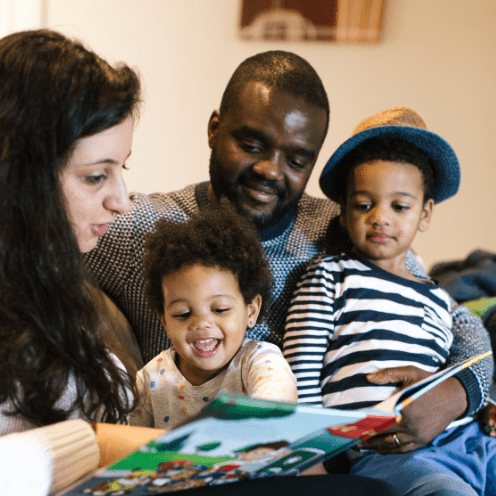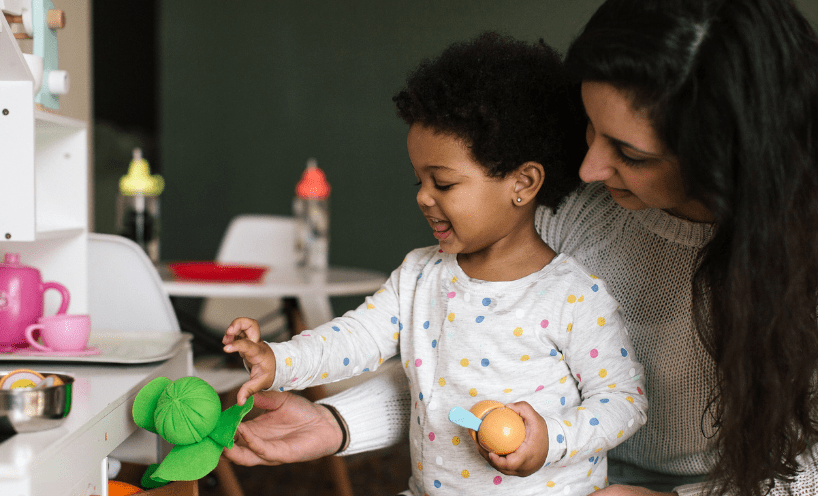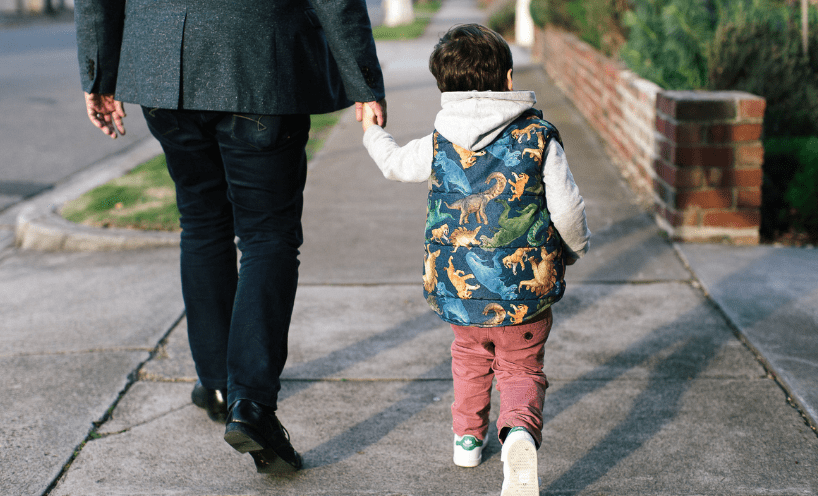In 2016 the Victorian Government announced an ambitious plan: 10 years to rebuild Victoria’s family violence system. The commitment to implement all 227 recommendations from the Royal Commission into Family Violence provided the basis for this reform.
Over the last 4 years we have invested more than $3 billion to establish the key elements of our new system.
The reform in the context of 2020
The Rolling Action Plan 2020-2023 has been a coordinated effort across government. It was developed while Victoria was deep in the second wave of coronavirus (COVID-19) and is being delivered as Victoria continues to respond to the global pandemic.
We know that the need for family violence response and prevention is greater than ever. There are many victim survivors yet to seek help, and perpetrators who must be held to account and supported to change their behaviour.
The government has reaffirmed that the family violence reform remains a priority as part of the social and economic recovery of Victoria. The two are inseparable: the continued rollout of our family violence reform will support Victoria’s recovery, and a strong recovery will help reduce the stressors that contribute to perpetrators choosing to use violence.
The bushfires at the beginning of this year and then COVID-19 have created additional challenges for our community: increased anxiety, social isolation, financial stress.
We know from evidence here and internationally that these factors increase the incidence and the severity of family violence and that we must be prepared to meet those challenges.
We will consider what we have learnt from the changes and innovations that have already taken place as we assess the impacts of these events on the system and continue to deliver the reform.
Despite the extraordinary context of 2020 in Victoria, the reform has kept going, continuing to build a system that is stronger, better joined up, more flexible and more resilient.
Next steps
We are four years into our 10-year reform and making good progress.
Royal Commission into Family Violence:
167 recommendations implemented, 60 still to go
Each recommendation implemented is another step towards a reformed family violence system. But there is still much to do.
Maintaining our focus on bringing together key elements of the reform will support an effective response to all Victorians who need to access the family violence system, or indeed, multiple systems.
We know we have to:
- keep improving how the system works together
- get the fullest possible picture of who is accessing the system and how it is working for them
- strengthen our evidence base by improving the quality of data we collect, sharing it more widely and commissioning more research
- continue to build a specialist family violence workforce which is highly trained and culturally safe
- continue to develop innovative and targeted approaches to preventing family violence
We are in the embedding phase of the reform. The first rolling action plan (2017-2020) laid a solid foundation with investment and activities implementing 167 of the 227 recommendations. The Rolling Action Plan 2020-2023 builds on this, with more new areas of focus, so that by 2023 we have a system that is more connected, sustainable and demonstrably delivering better outcomes for victim survivors.
The roadmap to 2023
The Rolling Action Plan provides an overview of where we have made progress, where we will improve, and what we will be working on.
It will be our roadmap from now until 2023, developed across government and with input from the broader family violence sector, people with lived experience and the community.
Rolling Action Plan 2020-2023
- continues the delivery of reform programs and projects already underway
- sets out the delivery of new activities with projected timelines
- provides an overview of key government initiatives and how they integrate with ongoing projects and programs, and other social services reforms
- reflects the impacts of COVID-19 on the family violence system and sets out how we will build on and learn from the changes and innovations introduced as a result of the pandemic
We acknowledge the contribution of the sector to the reform. We note that much more reform and change is being delivered across government and the broader family violence sector beyond that contained in this plan.
The Rolling Action Plan also reflects feedback from the several hundred Victorians, many with lived experience of family violence, who have provided additional insight during the consultation. They will continue to inform our actions as we enter this next phase of the reform.
Acknowledging the foundations
As we set out our planned activities it is also a moment to capture a big picture overview of the reform progress to date. There is much to be proud of, but we know there is still more work to do.
Our activities for the next three years build on the foundations that have been laid during delivery of the first rolling action plan (2017-2020).
We have established two agencies to oversee Victoria's family violence prevention and response:
Respect Victoria is a world-first independent statutory authority dedicated to the primary prevention of all forms of family violence and violence against women.
Family Safety Victoria has been established to coordinate the delivery of response and support services by bringing organisations together to create new and better ways to respond to family violence.
Progress highlights since 2016
We have a partnership with Aboriginal Victorians establishing a forum and an agreement: Dhelk Dja: Safe our Way.
The partnership supports an Aboriginal-led approach to the delivery of our family violence reforms in our Aboriginal communities, building on the foundational work of Indigenous Family Violence Regional Action Groups.
Victoria – towards a state of respect
We now have a deeper understanding of the causes and impacts of family violence. We understand far better now than we did four years ago that family violence is experienced differently for different people in different communities and therefore requires a range of prevention, early intervention and response activities.
Addressing gender inequality remains at the heart of achieving a Victoria free from violence. We know that gender inequality creates the social conditions that enable violence to occur.
The Rolling Action Plan sets out how we are applying our increasing understanding of the dynamics and different forms of family violence, and different types of family relationships to better prevent and respond to people across Victoria’s diverse community.
Measuring progress
Many of our programs are truly world firsts. This is why we have adopted a continuous improvement approach of incorporating new knowledge as we design and deliver policies, programs and services.
We have refreshed our Family Violence Outcomes Framework and developed a staged approach for comprehensive outcome measuring and reporting.
This approach will help us track progress and show how the reform is making a difference. We will also continue to build the evidence base, encouraging collaboration and a joined up approach to research and evaluation.
Connecting and strengthening
The family violence system is complex because it relies on multiple systems, including justice and police, family violence and community services, health, child protection, housing and education - all working together to deliver services and support. The family violence reform also intersects with other key social policy reforms in justice, housing and the findings of the Royal Commission into Victoria's Mental Health System.
The family violence system is getting stronger as each part of the system is reformed and connections across the system are built.
Some of these collaborative practices and working relationships have come about by careful planning, drawn from the recommendations of the Royal Commission. But other connections are being developed in response to new conditions, fast-tracked in many cases because of the 2019-2020 summer bushfires and COVID-19.
Delivering the ultimate goal of generational behavioural change can only be achieved by the community, sector and government:
- listening to and working with the diversity of Victoria's communities
- forming partnerships to maximise our understanding of what is happening on the ground: with the community, services, across government and from people with lived experience
- sharing what we know, learn and do
Listening and learning
We’ve built the Rolling Action Plan by talking with Victorians who are experiencing family violence, victim survivors of family violence, those working to stop family violence before it starts and those who support victim survivors, from family and friends through to support services and the community.
We can't just rely on government campaigns to change society's attitudes, society needs to be involved in fixing its problems.
We’ve heard that, overall, the changes we are making are effective:
- Our prevention activity is opening new community conversations and changing attitudes.
- Victim survivors are better supported to be safer and to get on with their lives.
- We are improving our interventions so that perpetrators are more accountable now for their actions than they were four years ago.
- With more and more happening – new services, supports and prevention campaigns coming online - we need to provide more information about what we are doing.
- This web platform for the Rolling Action Plan is an example of how we will communicate better about the connection of activities across the reform.
Updated



